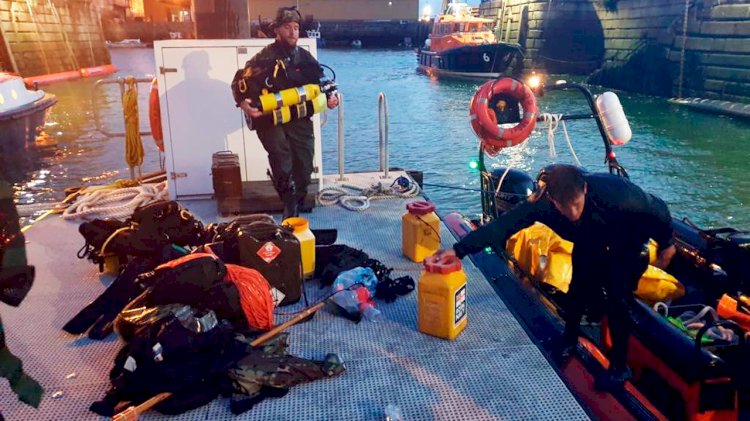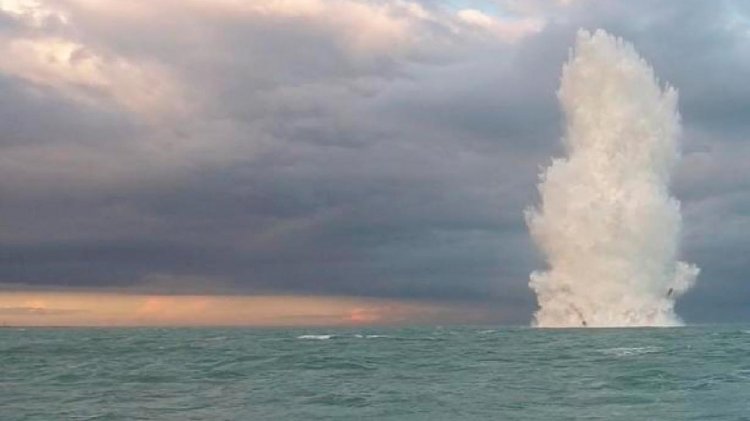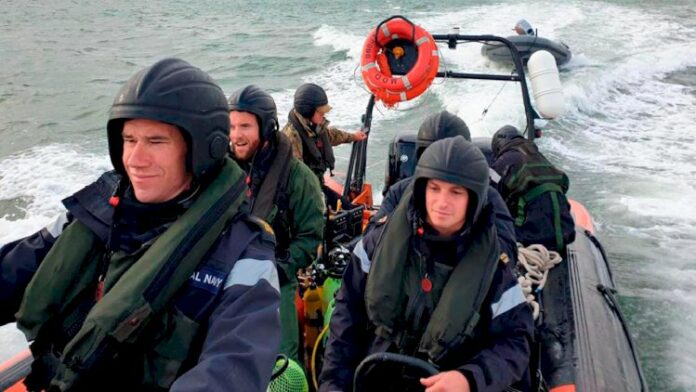Royal Navy bomb disposal experts have destroyed a 987kg German World War Two bomb found in the wreck of a 17th century warship near Southend Pier in Essex.
Civilian divers with Historic England discovered the historic device during an archeological dive on the 350-year-old protected shipwreck of 'London' which lies in two parts near the pier.
A bespoke eight-man team of Royal Navy divers from Portsmouth were dispatched to the area where they towed the device out of the estuary to safely destroy it at sea in a complex six-day operation.
Lieutenant Ben Brown, Officer in Charge of Southern Diving Unit Two based in Portsmouth, said:
"The complexity of this task should not be underestimated. Dealing with one of the largest pieces of German Second World War ordnance in the Thames Estuary presents some of the most challenging diving conditions there are to work in. With nil visibility underwater and significant tidal flow, the diving windows are extremely limited and all work on the ordnance must be done by touch.
The deteriorating weather conditions of this week also added another layer of complexity, and all whilst working next to one of the busiest shipping channels in the UK. However, these conditions are exactly what Royal Navy Clearance Divers are trained to work under and my team did an excellent job of keeping the public – and other mariners – safe."

The WW2 German parachute ground mine contained a main charge of 697kg of Hexamite, equivalent to 767kg of TNT, and weighed 987kg in total. Known as a GC, it was one of the largest pieces of ordnance used by the Luftwaffe during the Second World War.
Due to the complexity of the task and the difficult weather conditions it took the team six days, 216 man hours, and around 20 dives, to carefully lift the mine from the wreck and slowly tow it for five miles to the disposal site at Shoeburyness, blowing it up with a 2kg charge.
Lt Brown added:
"The mine, most likely dropped to target one of the numerous docks in the Thames Estuary, was in extremely good condition given its age. This task was completed by SDU2 but it would not have been possible were it not for the cooperation and assistance from numerous other agencies. These included HM Coastguard, RNLI, Essex Police Marine Unit, Essex County Fire and Rescue Service, Peel Port Sheerness Docks, Shoeburyness Ranges, London Port Authorities and Historic England."




